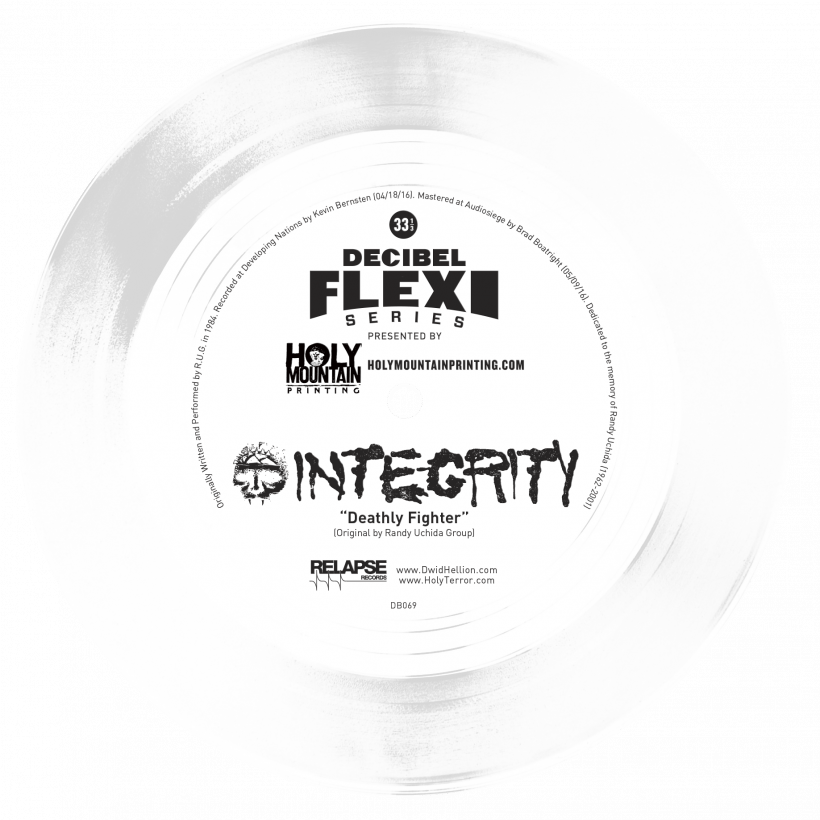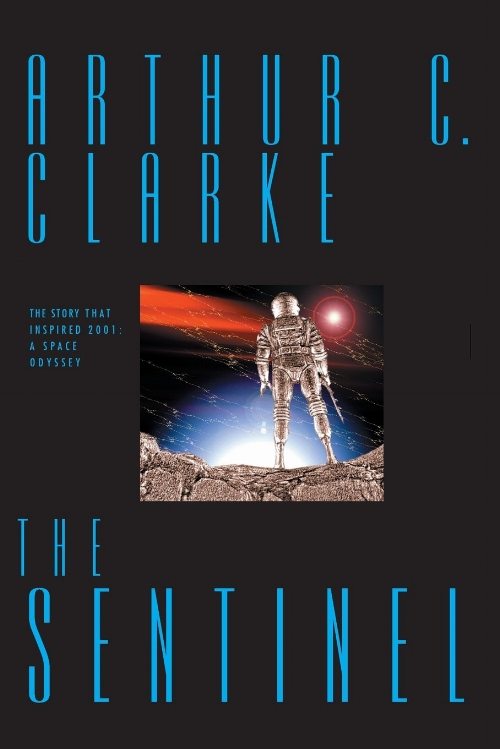

In a recent rave review, Jonathan Horsley describes the sophomore full-length from Artificial Brain, Infrared Horizon, as an album which “envisions an extinct humanity, our place in the universe taken by robots and cyborgs, synthetics who believe they have naturally evolved from mankind, as though the species of Aristotle, Einstein, da Vinci was only ever primordial goo,” adding that vocalist Will Smith’s lyrics “read like Mr. Spock took a word cloud of Skynet’s internet search history and made beat poetry of it.”
Combined with the decidedly sci-fi imagery the Long Island quintet employs for both album artwork and tour posters, it seemed apropos to reach out to the band for a list of their spaced out literary influences.
The individual members’ erudite, nutty selections did not disappoint…
A Canticle for Leibowitz by Walter M. Miller Jr.
A Canticle for Leibowitz is a novel in three sections, set in a post-apocalyptic future in which the doctrine of “mutually assured destruction” has failed to deter global nuclear warfare. Bombs fall, and in the period afterwards, politicians and scientists become targets of violence for groups of survivors who feel that a “simplification” in in order; that all of the information that lead the world to this moment must to be destroyed along with all those who can teach it. While furious mobs set fire to books and murdered the literate, the titular Leibowitz dedicates himself to the preservation of the information the mobs were so intent on erasing, smuggling and memorizing texts and developing a monastic order charged with these tasks. The novel begins centuries after the world has been thoroughly “simplified,” opening with the story of a brother of this monastic order who meets a mysterious stranger and, through this encounter, comes across a treasure-trove of Leibowitz’s lost texts. What follows is a narrative spanning thousands of years that thoughtfully examines anti-intellectualism and the relationship between science and religion. Also worth noting is that the monastic order described here provided the inspiration for the “Brotherhood of Steel” of the first two installments of the Fallout franchise, an organization with the primary goal of collecting and preserving technology in a post-nuclear wasteland. – Sam Smith, bass/vocals
Red Mars by Kim Stanley Robinson

Red Mars is the first book in a trilogy that chronicles the colonization and terraforming of Mars. I’ve heard/seen mixed reviews of this book and that’s due to the fact that if you’re not a glistening-eyed nerd freak for all things Mars, you’ll probably hate this. It’s long, it’s meticulous, and it has a ton of scientific jargon. It also goes heavy into large and small-scale politics. Each chapter is written from the perspective of a different character — focusing on a few of the first settlers. The author does a great job of keeping his bias away from the characters, creating an almost-schizophrenic level of divergent storytelling. Apart from the first chapter, the book is written in chronological order, starting with the flight to Mars; during which many problems arise between the (first) 100 passengers that foreshadow the chaos awaiting them. Robinson devoted years to researching Mars, technology, and geology, in order to make this novel as real and believable as possible. So if you aren’t already fascinated with the concept of starting anew on a cold, copper rock, then this will be a dry read. But if you dream of life in an unlikely, but close corner of the universe, this book does an amazing job of bringing your inner wonders to a palpable journey…that may actually be in our generation’s future. – Oleg Zalman, guitars
“The Sentinel” by Arthur C. Clarke

Described as “the seed from which 2001: A Space Odyssey sprang,” The Sentinel is a short story that takes place in the Mare Crisium, an actual location on earth’s moon. Clarke spares no time explaining how this short story bears as much relation to the movie as an acorn to the resultant full-grown oak. Yet, in my opinion, the resemblance was right there in my face the entire time. In “The Sentinel” a team of geologists are stationed on the moon, combing its deserted surface for proof of any sort of life that would have pre-dated humanity by millions of years. In a scene that resonates that of a Monday morning before work, one of the geologists is challenged by a distant reflection of light on top of one of the moon’s many peaks, almost twenty miles away. What he discovers is a machine-like structure, though far more advanced than the technology of our species, that is dated to be from a time well before the first evidence of life on earth. A “fire alarm” as he describes it, this machine is expected to be a connection between an infant race, just recently advanced enough to leave their “cradle” and an ancient alien species, who have been exploring and monitoring the universe, alone, in search for intelligent life other than their own. Without a clear understanding of the ancient species’ true intentions, our earthlings now await the return of the sentinel’s creators who will expectedly come back to check in on the machinery they left all those years ago. What will happen then is left up to the imagination of the reader. – Keith Abrami, drums
Enders Game by Orson Scott Card

A dark, militaristic novel set in a far-shot future of intergalactic warfare. I have never seen the movie, but this book made a big impact on me as a kid with its themes of child soldiers, genocide and the murky grey areas a soldiers decisions often occupy. This is a mainstay on the U.S. Marine Corps Professional reading list for a reason. – Will Smith, vocals
Roadside Picnic by Arkady and Boris Strugatsky
One day, at six locations around the world, strange phenomena begin to occur. It is assumed by many that there has been some kind of alien visitation, although no one can claim to have seen the visitors. In some of the six locations, which come to be known as “Zones,” people are blinded — in others, plague erupts. The physical laws of the universe seem not to hold sway in these Zones, and in addition to these anomalies, artifacts with incredibly strange properties have been left behind by the visitors. Concerned about the possible consequences of removal of these artifacts from the Zones, the governments of the world decide to bar entry into these six locations, but there are some who are able to find ways through, regardless. Roadside Picnic is the story of Red, one such trespasser (or “stalker”) who sneaks into one of these Zones in order to remove and then sell these left-behind artifacts, braving the all of the traps and anomalies and suffering the most dire consequences as a result. One of my favorite films, Andrei Tarkovsky’s 1979 masterpiece Stalker, was based loosely on this novel, and both force us to consider whether or not we should have — or even know — what it is that we most deeply desire.








